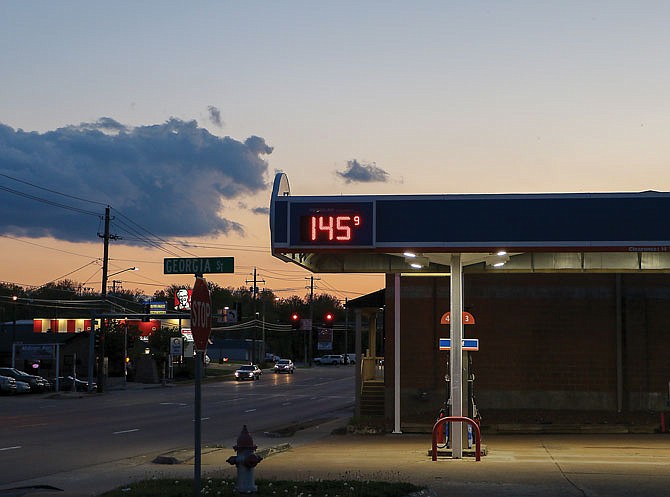The Missouri Department of Transportation is among a group of state transportation departments calling for nearly $50 billion in federal stimulus to keep road work going while key sources of revenue like the gas tax decline.
Traffic is down in Missouri, and across the nation, as fewer people are driving because many are following stay-at-home orders to slow the spread of COVID-19. People are buying less fuel, and fuel prices are down so MoDOT is getting less revenue from the 17 cent gas and other user fees that account for almost 99 percent of MoDOT's state funds.
The American Association of State Highway and Transportation Officials, or AASHTO, estimates state transportation departments will lose $50 billion in expected revenue over the next 18 months, and it wants Congress to give them $49.95 billion as a "backstop" so they can go ahead with planned projects. It's similar to the $25 billion for public transit agencies and $10 billion for airports that Congress included in the CARES Act it passed in late March.
MoDOT expects to lose 30 percent of its expected revenue over the next 18 months, about $925 million, Director Patrick McKenna wrote in a letter to Missouri's congressional delegation, urging them to support the stimulus AASHTO asked for this month.
Without expected levels of revenue, or the federal backstop, Missouri would lose the ability to draw down $2.1 billion in federal funds for construction projects, McKenna wrote. Added to a loss of $530 million in state funds, the state wouldn't be able to award $2.6 billion of the $4.9 billion in construction projects it planned through 2025, he wrote.
"To put this into perspective, that would equate to approximately 400 bridges and 20,000 lane miles of Missouri roadways NOT being repaired that are in our current plan," he wrote.
MoDOT has already pushed back about $45 million worth of projects set to go out for bids this month because it expects it won't have the funds to pay for them with gas tax revenues likely to come in much lower than expected. It's not alone, as states including North Carolina, Ohio, Oklahoma and Pennsylvania are already cutting projects or furloughing workers ahead of revenue shortfalls.
"Additional consideration is being given to whether future lettings should be reduced or canceled," McKenna wrote.
Along with cutting projects, the department would also have to make operational cuts, reducing services like pavement repair, snow and ice removal, and mowing, he wrote. It could also mean cuts to the Missouri Highway Patrol and Department of Revenue, which also use gas tax revenue.
Even if the economy reopens soon, it's unlikely people are immediately going to return to their old behaviors, AASHTO Executive Director Jim Tyman said. Along with the reduced travel driven by the virus, the economic downturn will reduce travel, too. Even if it's close to normal, the revenue lost in the past month and a half isn't coming back, he said.
"We're expecting to see reduced travel and a reduction in state transportation revenue throughout the summer, throughout the rest of the year and into next year," he said.
If states lose out on that funding, people will lose jobs within state transportation departments, on construction sites and across the supply chains that feed construction, Tyman said. That's why the proposal has support from industry groups including the Missouri Limestone Producers Association, he said.
"It's going to impact construction workers, it's going to impact asphalt providers, it's going to impact the folks that provide the steel and concrete for bridges and roadways, all of that is going to be impacted," he said.
McKenna said in his letter the effects on jobs hasn't been quantified, but it's significant. According to a 2015 American Road and Transportation Builders Association survey, designing, constructing and maintaining transportation infrastructure like highways supports 79,083 jobs across Missouri, with those workers earning $2.9 billion a year.

